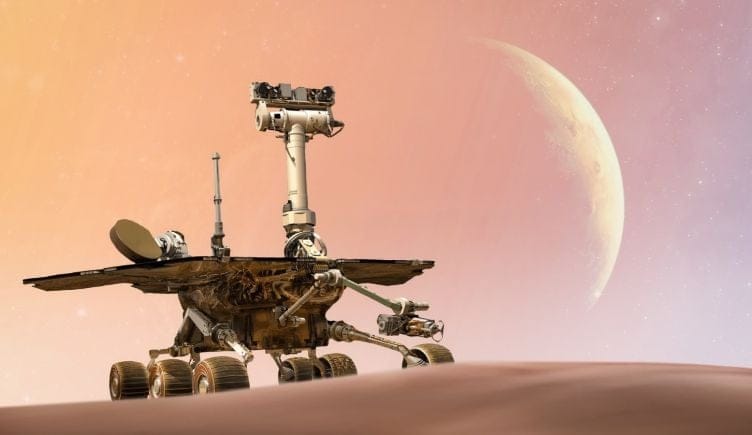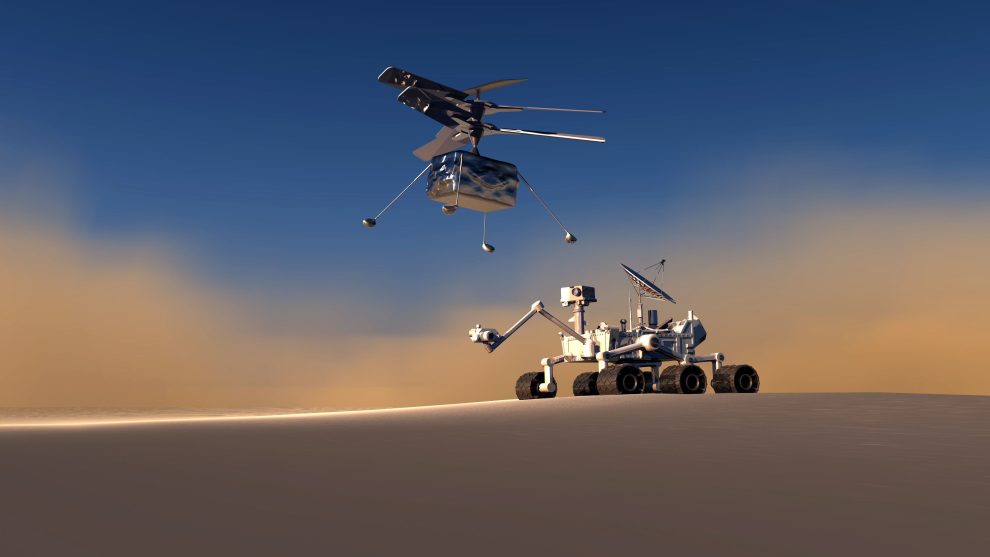Our universe is a vast and enigmatic place, brimming with secrets waiting to be unraveled. For centuries, we’ve relied on telescopes and probes to peer into the celestial abyss, but the sheer scale and complexity of space present immense challenges. This is where artificial intelligence (AI) steps in, becoming a game-changer in the realm of space exploration.
Robots that Roam: AI-Powered Planetary Explorers
No longer confined to science fiction, robotic explorers equipped with AI are venturing where humans cannot. These intrepid machines, like NASA’s Curiosity and Perseverance rovers on Mars, are revolutionizing our understanding of the Red Planet.
Autonomous Navigation Across Alien Terrain
AI algorithms enable these rovers to navigate Martian terrain, avoiding obstacles and charting their own course. Imagine a self-driving car, but on another planet! This allows the rovers to cover more ground than humans could accomplish manually controlling them from Earth.
Mobile Laboratories Analyze Rocks, Atmosphere and Life Signs
Equipped with sophisticated instruments and AI-powered analysis tools, the rovers can collect data on Martian rocks, atmosphere, and potential signs of past life. Think of them as miniature laboratories on wheels. The onboard AI helps the rovers prioritize the most valuable samples and scientific discoveries.
Adaptive Learning Robots Explore Independently
AI empowers these robots to adapt to unforeseen circumstances and learn from their experiences. They can even make independent decisions based on real-time data, something no pre-programmed rover could do. This allows them to respond intelligently to new discoveries and scenarios.

Exoplanet Hunters: AI Uncovers Distant Worlds
Beyond our solar system lies a vast cosmic ocean of countless stars, and potentially, billions of planets. AI is at the forefront of the hunt for these elusive exoplanets, sifting through mountains of data from telescopes like the Kepler Space Telescope and TESS.
Faint Signals Reveal Faraway Planets
AI algorithms can identify the faint dimming of a star’s light caused by a planet transiting in front of it. This allows us to detect exoplanets even if they are incredibly far away. Human researchers would struggle to discern these minute changes in massive datasets.
Efficient Data Analysis Accelerates Discovery
The sheer volume of data collected by telescopes is staggering. AI can analyze this data much faster and more efficiently than humans, identifying promising exoplanet candidates and filtering out false positives. This dramatically speeds up the planet hunting process.
Characterizing Alien Worlds in Deep Space
Once an exoplanet is identified, AI helps determine its size, composition, and potential habitability by analyzing factors like the planet’s atmosphere and distance from its star. This enables us to prioritize the most intriguing candidates for further study.
The Future: AI Opens Up the Final Frontier
The partnership between AI and space exploration is still in its early stages, but the potential is truly mind-boggling. Here are some exciting directions this technology could take us:
- Interstellar probes making independent discoveries powered by AI during long journeys to distant stars
- Self-sustaining lunar or Martian bases managed by AI, creating resources to support human exploration
- AI-powered telescopes capable of detecting signs of extraterrestrial intelligence, finally answering the age-old question: “Are we alone?”
The possibilities are as vast as the universe itself. With AI as our guide, the next era of space exploration promises to be one of the most thrilling and transformative in human history.
The Ultimate Goal: Expanding Knowledge and Possibilities
As we navigate the cosmos with the help of AI, it’s crucial to remember that the purpose remains unchanged: to push the boundaries of knowledge and inspire future generations. AI is a tool to drive innovation, but human curiosity, ingenuity and passion must guide its use.
So, the next time you gaze at the night sky, remember the universe is now a playground full of mysteries waiting to be solved by humans and our intelligent machines working together. Let’s boldly go where no one has gone before!
















Add Comment